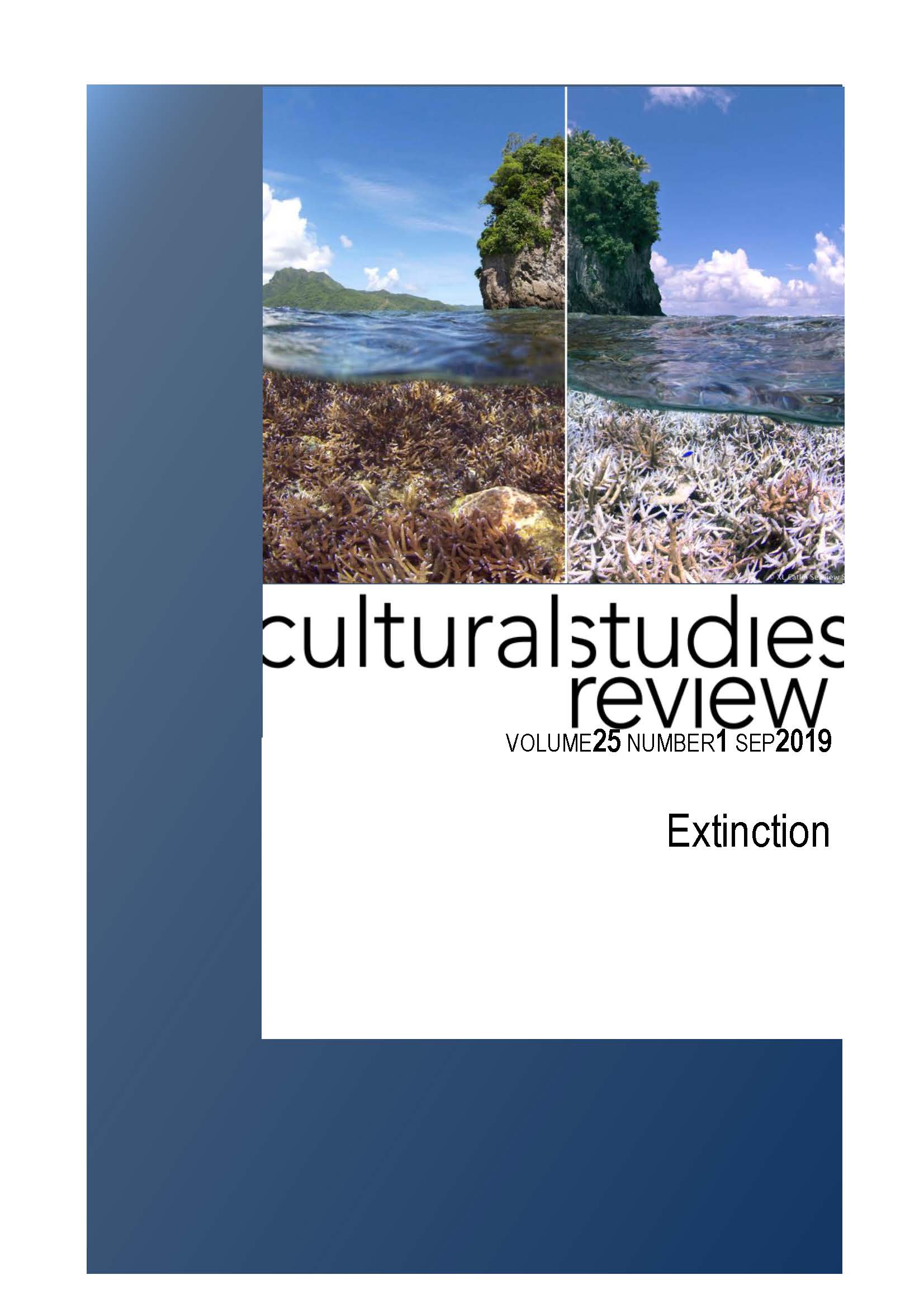(A)wake for ‘the Passions of this Earth’: Extinction and the Absurd ‘Ethics’ of Novel Ecosystems
Main Article Content
Abstract
Drawing on the work of Albert Camus this paper offers a critique of certain discourses around ‘novel ecosystems’. These new species ‘assemblages’ are frequently defended, or even celebrated, as exemplifying resilience and adaptability to the environmental repercussions of a global situation inaccurately glossed as ‘The Anthropocene’. Here the increasing prevalence of economically generated changes, including the accelerating translocations of species, are set against earlier conservation values emphasizing protection of ‘natural’ and ‘native’ ecologies. The proliferation of novel ecosystems, together with an instrumental emphasis on their functional, ‘pragmatic’, and economic benefits, appears to make environmentalists’ ethical concerns about the loss of endangered others seem ‘absurd’ and frames conservation as a Sisyphean task. Yet Camus early work provides arguments for ethical / political resistance in just such absurd and extreme circumstances.
Article Details
Section
Authors who publish with this journal agree to the following terms:
a) Authors retain copyright and grant the journal right of first publication with the work simultaneously licensed undera Creative Commons Attribution License that allows others to share and adapt the work with an acknowledgement of the work's authorship and initial publication in this journal.
b) Authors are able to enter into separate, additional contractual arrangements for the non-exclusive distribution of the journal's published version of the work (e.g., post it to an institutional repository or publish it in a book), with an acknowledgement of its initial publication in this journal.
c) Authors are permitted and encouraged to post their work online (e.g., in institutional repositories or on their website) prior to and during the submission process, as it can lead to productive exchanges, as well as earlier and greater citation of published work (See The Open Access Citation Advantage Service). Where authors include such a work in an institutional repository or on their website (ie. a copy of a work which has been published in a UTS ePRESS journal, or a pre-print or post-print version of that work), we request that they include a statement that acknowledges the UTS ePRESS publication including the name of the journal, the volume number and a web-link to the journal item.
d) Authors should be aware that the Creative Commons Attribution (CC-BY) License permits readers to share (copy and redistribute the work in any medium or format) and adapt (remix, transform, and build upon the work) for any purpose, even commercially, provided they also give appropriate credit to the work, provide a link to the license, and indicate if changes were made. They may do these things in any reasonable manner, but not in any way that suggests you or your publisher endorses their use.
